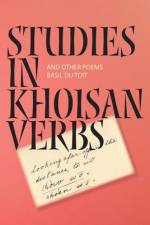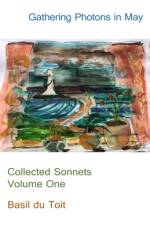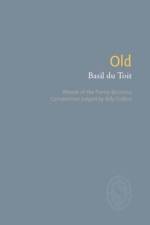Bøger af Basil Du Toit
-
199,95 kr. Du Toit draws on his childhood years in Botswana (the Bechuanaland Protectorate, as it was in those days) to examine questions of language identity and entitlement. He recalls confiding the secret of a magic trick to an itinerant Tswana man who in exchange taught him how to say a few words of the / Xam language; this proximity of language to the magical fashioning of reality still haunts him and has led to poems questioning our sense of belonging to social structures, sexual groupings and even to humanity itself.Paradoxically, a diverse ethnic background (with Dutch, French, German and Scottish forebears) works against Du Toit's sense of being welcomed into any single national group. Two directions of trans-national entitlement remain open - movement into an inner landscape of spiritual and artistic values, and an allegiance to the planet as an ecologically neutral, valued and threatened space of dwelling. Both of these manifestations of "home" feature prominently in Du Toit's work. A visionary linguistics binds these worlds together - foregrounding of the inner life as a source of values and home encourages a Kantian vision of a natural world created by the necessary structures of human consciousness, language being the force and locus of this creation. Du Toit's longed-for release from paid employment in 2011 allowed him to spend his mornings in Edinburgh University's Main Library; there, over the next ten years, basing himself on the Third Floor of the library (where the University's literature collections are housed), he composed a large body of poems, mainly free-verse sonnets, from which the poems of "Studies in Khoisan Verbs" are drawn.
- Bog
- 199,95 kr.
-
143,95 kr. Playing with My Christianity is the second volume of Basil du Toit's Collected Sonnets, and brings to a close his archival selection from the over 600 sonnets he wrote between 2011 (when he retired) and 2021. Du Toit likens these poems to short excursions through material substances, brief suffusions in the weft and weight of the world - they are thus conceived of as sensory experiences before they are thought of as intellectual meanings. Written on the third floor of Edinburgh University's Main Library (where most of the university's rich archive of world literatures is held) these high-spirited poems are as much an expression of Du Toit's relief at having been released from the miseries of paid employment, as exuberant journeys of discovery in their own right. ABOUT THE AUTHOR Basil du Toit was born in Cape Town in 1951, but spent much of his childhood in Botswana, at that time the British Protectorate of Bechuanaland. He recalls trading the secrets of a magic trick with a Tswana man who in exchange taught him how to say a few words in the rapidly vanishing / Xam language of the Kalahari Bushmen. This proximity of fragile language to the magical fashioning of reality continues to inform his writing.
- Bog
- 143,95 kr.
-
148,95 kr. ABOUT GATHERING PHOTONS IN MAY No subject is off-limits in these wide-ranging poems. They are like bees in a field, gathering the honey of objects. They are poems which distil essences, in quick, lively forays of attention. Vividness and specificity of language are to the fore, relishing verbal depth and density. Their aim is to evoke the sensual granularity of the world, by infusing objects with language, by living the world linguistically - a joy in how the world feels and smells; in how it looks as sunlight breaks over the horizon; in the muscularity of a mollusc; in the scratchiness of a grasshopper. ABOUT THE AUTHOR Basil du Toit was born in Cape Town in 1951 and came to Edinburgh in 1980 to undertake postgraduate study in Philosophy. He has lived there ever since. Although nearly all of his poetry has been written in Scotland, he identifies both as a Scottish and as a South African poet. In 1987 he shared the Sanlam Literary Award with the poet Douglas Livingstone. Subsequently he has been a winner of the Poetry Business Book & Pamphlet Competition (judged by Billy Collins) and won the Wigtown Poetry Prize in 2021 (judged by William Letford).
- Bog
- 148,95 kr.
-
73,95 kr. - Bog
- 73,95 kr.




